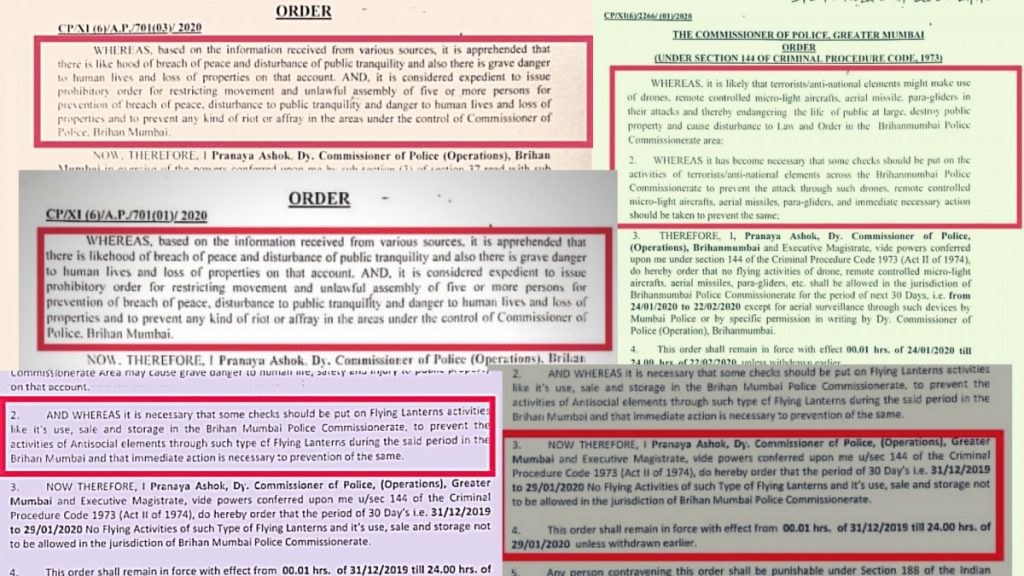In Mumbai, the Fundamental Right to Show Dissent Has Been Violated for 30 Years https://thewire.in/rights/mumbai-protest-section-144
Successive and overlapping Section 144 orders since 1993 have put paid to Mumbaikars' ability to protest where and when they want to.
The Wire has accessed orders issued in the past year and almost all of them are worded similarly. Even the concerns raised in them read the same. DCP Ashok shok says since these are routine orders, much emphasis is not put on redrafting them. “Every two months, these orders get issued and they are mostly almost worded the same way,” he tells The Wire.

In the Mazdoor Kisan Shakti Sanghatan vs Union of India case, the apex court in 2018,
“It is argued on behalf of the respondents that as there is no change in the situation, which remains the same insofar as the sensitivity of this area and specific/peculiar conditions prevailing, such orders in the repetitive form are necessitated. Even if we accept this position and proceed on that basis, this would only mean continuous regulation of the proposed public meetings, processions, demonstrations, etc. by not allowing the same in ‘unrestricted’ manner. However, in reality, no such activities are allowed at all.”
Similarly, in the Ramlila Maidan incident of 2011, when the Supreme Court was faced with the issue of police excesses for the purpose of enforcing an order under Section 144, the court had observed that the right to assembly and peaceful agitation were basic features of a democratic system and the government should encourage the exercise of these rights.
It observed:
“The people of a democratic country like ours have a right to raise their voice against the decisions and actions of the Government or even to express their resentment over the actions of the Government on any subject of social or national importance. The Government has to respect and, in fact, encourage exercise of such rights. It is the abundant duty of the State to aid the exercise of the right to freedom of speech as understood in its comprehensive sense and not to throttle or frustrate the exercise of such rights by exercising its executive or legislative powers and passing orders or taking action in that the direction in the name of reasonable restrictions.”
